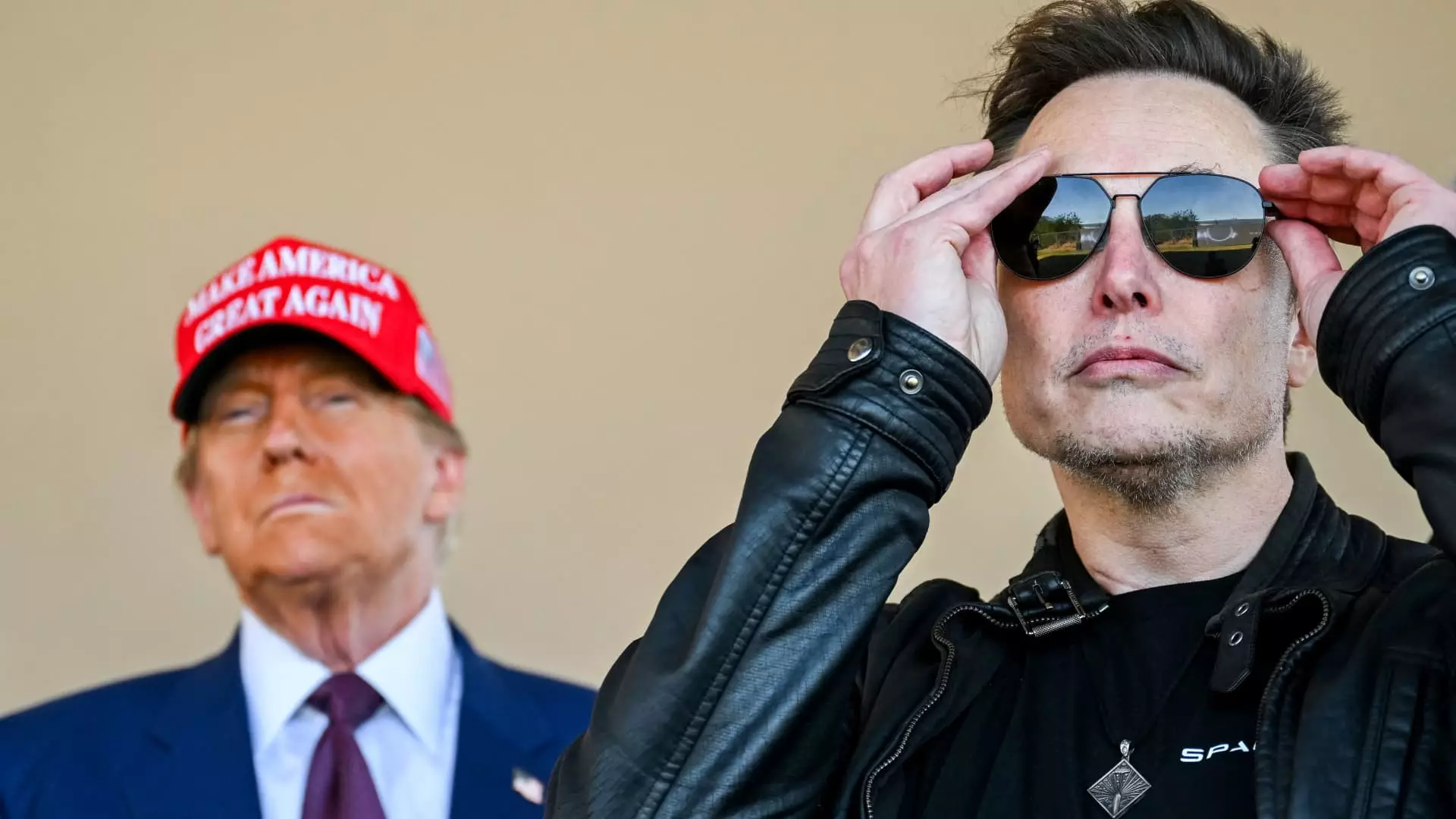On a momentous Wednesday, Tesla’s stock experienced an invigorating surge, reaching an unprecedented peak amid various market dynamics and political narratives. The electric vehicle giant’s shares soared to an intraday high of $415, narrowly eclipsing its previous record set in late 2021. This resurgence, largely attributed to a post-election rally and growing investor optimism surrounding Elon Musk’s leadership, raises questions regarding the intertwined relationship between political movements and corporate performance in today’s unpredictable market landscape.
The remarkable rally of Tesla’s stock cannot be divorced from the broader political context, particularly the electoral triumph of Donald Trump early last month. As the market reacted positively to the election outcome, Tesla’s stock values surged by roughly 66% this year, predominantly fueled by this political shift. Interestingly, Musk’s financial involvement in Trump’s campaign — with investments amounting to $277 million according to Federal Election Commission records — highlighted a strategic alliance that appeared to resonate with investors, thereby doubling Tesla’s potential consumer base as noted by Craig Irwin, an analyst at Roth MKM.
This correlation between Trump’s victory and Tesla’s stock ascent encapsulates the unpredictable nature of political influences on Wall Street. Musk’s advocacy and outreach initiatives, particularly his social media presence on X that aimed to amplify pro-Trump sentiments, inevitably shifted public perception and fostered a new sense of investor enthusiasm. This phenomenon of the so-called “Trump bump” in the stock market underscores how political affiliations can significantly impact corporate valuation and investor sentiment.
The revaluation of Tesla’s stock is not merely anecdotal but is reinforced by tangible analyses from prominent financial institutions. Notably, Goldman Sachs updated its price target on Tesla shares, ushering in a wave of upgraded expectations from several firms, including Morgan Stanley and Bank of America. The Goldman team posited that market perspectives on Tesla are becoming increasingly forward-looking, especially concerning burgeoning opportunities in artificial intelligence — a sector that is expected to fuel growth and innovation for the company.
Irwin’s comment about Musk’s vocal support for Trump elevating Tesla’s credibility and expanding its consumer pool reflects how investor sentiment can be swayed not just by financial performance but by political affiliations and influence. This is an essential lesson in corporate finance: the fusion of politics with business can provide unexpected advantages, repositioning a company within competitive landscapes.
A Volatile Year for Tesla: Challenges and Recovery
Despite the exuberance observed recently, it is crucial to recognize the volatile context from which Tesla’s stock has emerged. The first quarter of 2024 presented significant challenges, with shares plummeting by 29%, marking it as the worst quarterly performance since late 2022. Investors had expressed concerns over declining revenue amidst intensifying competition, particularly from the burgeoning electric vehicle market in China.
However, a remarkable turnaround was heralded by the company’s ability to exceed profit expectations, suggesting resilience and potential for growth amidst adversity. Musk’s optimistic projections for the future, forecasting a growth rate of 20% to 30% predicated on developments in lower-cost vehicles and advancements in autonomous technology, injects a cautious optimism into the conversation around Tesla’s potential.
In summation, Tesla’s position in the market exemplifies the complex weave of political influence, investor sentiment, and corporate strategy. As the company continues to leverage both its innovative prowess and the political landscape that surrounds it, the stock surge serves as both an opportunity and a reminder of the volatile nature of investment in the electric vehicle space. Moving forward, stakeholders and investors alike should remain critically aware of how political affiliations intertwine with market performance, as these dynamics will invariably shape the future trajectory of Tesla and similar companies striving to navigate an increasingly interconnected world.


Leave a Reply